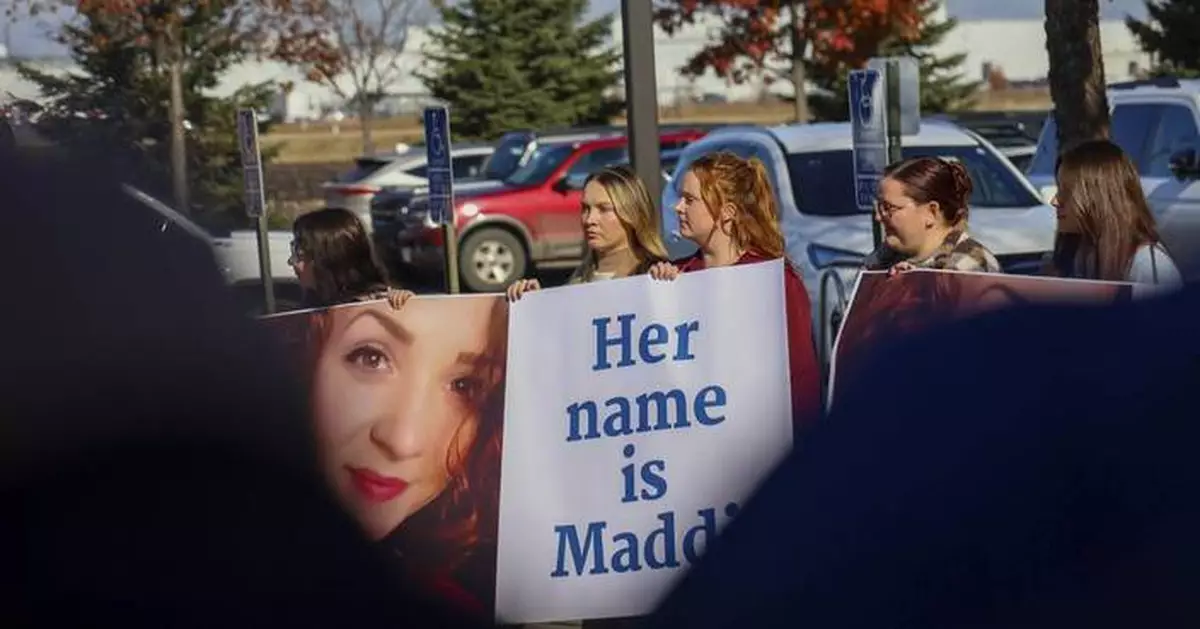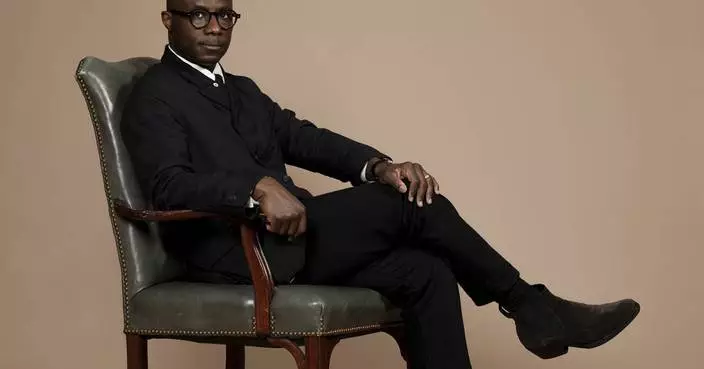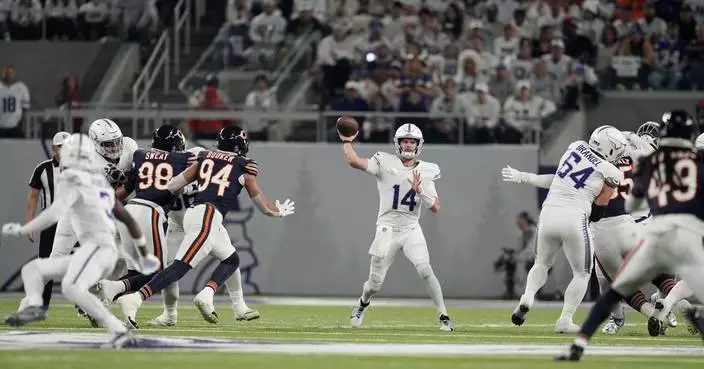WINONA. Minn. (AP) — A Minnesota man convicted of first-degree murder faces sentencing Tuesday for killing his girlfriend, whose 2023 disappearance after she dropped off their kids at daycare drew national attention and prompted thousands of volunteers to join the search for her.
A jury found Adam Fravel, 30, of Mabel, guilty in November. He was arrested in June 2023, days after deputies found the body of Madeline Kingsbury in a wooded area a few miles away from a property owned by Fravel’s parents.
Click to Gallery
FILE -Winona Police Chief Tom Williams speaks to the media outside the Blue Earth County Justice Center after Adam Fravel was found guilty on all counts for the murder of Madeline Kingsbury, Nov. 7, 2024 in Mankato, Minn. (Hannah Yang/Minnesota Public Radio via AP, File)
FILE - Adam Fravel's defense attorney Zach Bauer expresses his disappoint in the outcome of his trial, Nov. 7, 2024 in Mankato, Minn. (Hannah Yang/Minnesota Public Radio via AP, File)
FILE - David Kingsbury, father of Madeline Kingsbury, expresses that while he's glad for the guilty verdict, it won't bring his daughter back, Nov. 7, 2024 in Mankato, Minn. (Hannah Yang/Minnesota Public Radio via AP, File)
FILE -David Kingsbury, the father of Madeline Kingsbury, addresses the press after the jury found Adam Fravel guilty of Madeline's murder on all counts at the Blue Earth County Justice Center, Nov. 7, 2024 in Mankato, Minn. (Hannah Yang/Minnesota Public Radio via AP)
FILE - This undated booking photo provided by the Winona County, Minn., Detention Center shows Adam Fravel. (Winona County Detention Center via AP, File)
FILE -After a three-week trial at the Blue Earth County Justice Center in Mankato, Minn. the jury found Adam Fravel guilty on all counts for the murder of Madeline Kingsbury on Thursday, Nov. 7, 2024. (Hannah Yang/Minnesota Public Radio via AP, File)
The 26-year-old Kingsbury vanished in March 2023 after dropping off her and Fravel’s two young children at daycare in Winona, a southeastern Minnesota city of about 26,000 residents.
The trial was moved to Mankato, about 136 miles (219 kilometers) west of Winona, because of extensive pretrial publicity. Fravel will be sentenced back in Winona by District Judge Nancy Buytendorp. Premeditated first-degree murder, the most serious of the four counts on which he was convicted, carries a mandatory sentence of life in prison.
Police found Kingsbury’s body in a culvert along a gravel road, in a gray fitted bed sheet that had been closed with black Gorilla tape. Prosecutor Phil Prokopowicz said she was strangled with a towel and that a medical examiner concluded she likely died of asphyxiation. The towel, bedsheet and tape matched items found in their Winona home, Prokopowicz said during the trial.
Prokopowicz and witnesses said Kingsbury had been planning to leave Fravel for another man after becoming frustrated with his alleged abusive behavior and inadequate contributions to their family. He responded to those plans by killing her, the prosecutor said.
“The relationship was never about them,” Prokopowicz said in his closing statement. “It was always about him.”
Witnesses testified they had seen bruises on Kingsbury’s neck. In one instance, a friend said she was on a video call with Kingsbury when Fravel allegedly hit her. Another friend testified that Kingsbury told her Fravel had warned Kingsbury that she could end up like Gabby Petito, a woman who was killed by her boyfriend in a high-profile 2021 case.
Fravel did not testify in his own defense. His attorney, Zach Bauer, said in his closing argument that the case against Fravel relied on “tunnel vision, revisionist history and secret truths.” He contended that there was no sign of any physical struggle inside the couple’s home. He also pointed to testimony from a neighbor who claimed to have never heard the couple argue.
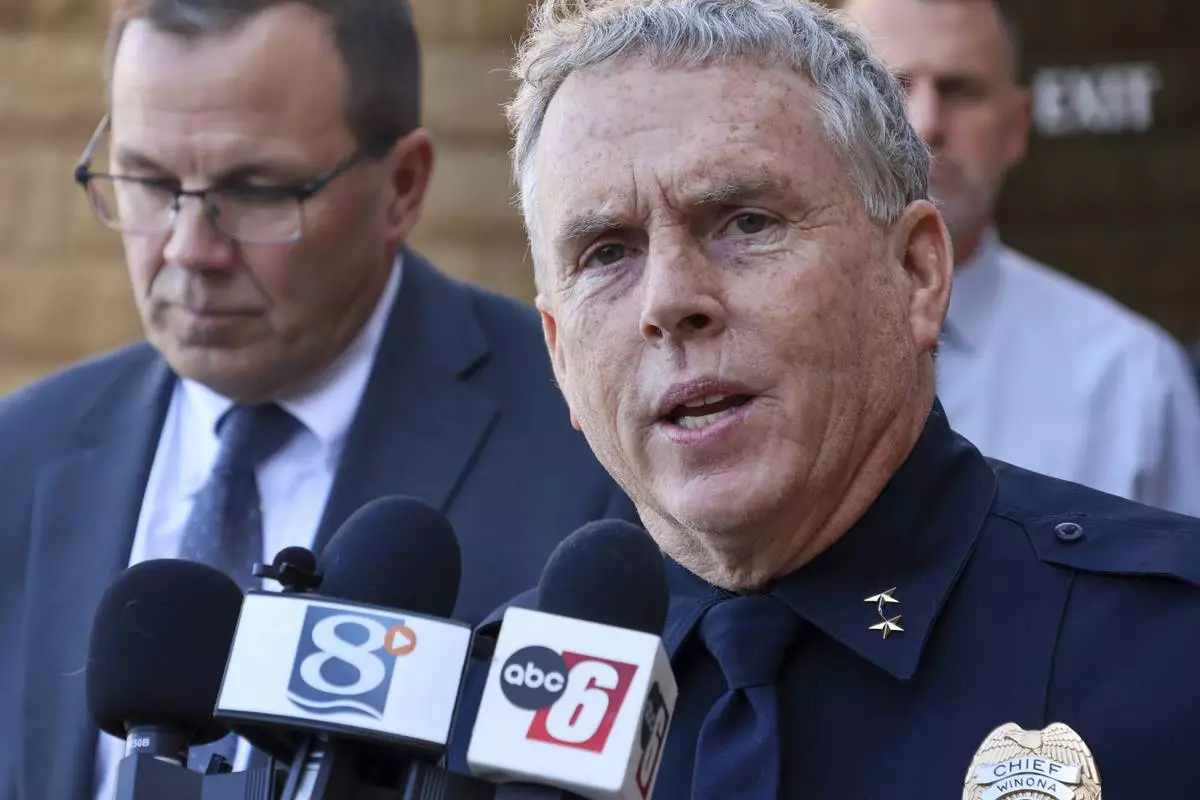
FILE -Winona Police Chief Tom Williams speaks to the media outside the Blue Earth County Justice Center after Adam Fravel was found guilty on all counts for the murder of Madeline Kingsbury, Nov. 7, 2024 in Mankato, Minn. (Hannah Yang/Minnesota Public Radio via AP, File)

FILE - Adam Fravel's defense attorney Zach Bauer expresses his disappoint in the outcome of his trial, Nov. 7, 2024 in Mankato, Minn. (Hannah Yang/Minnesota Public Radio via AP, File)
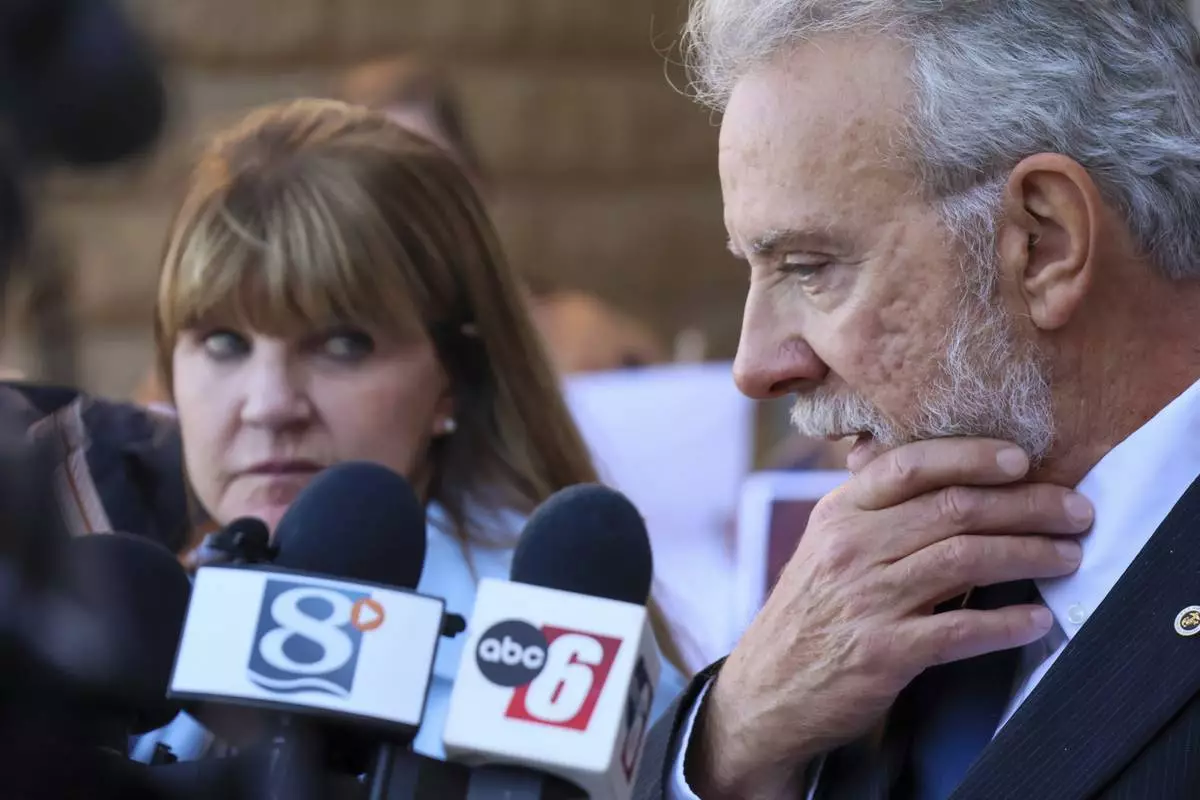
FILE - David Kingsbury, father of Madeline Kingsbury, expresses that while he's glad for the guilty verdict, it won't bring his daughter back, Nov. 7, 2024 in Mankato, Minn. (Hannah Yang/Minnesota Public Radio via AP, File)
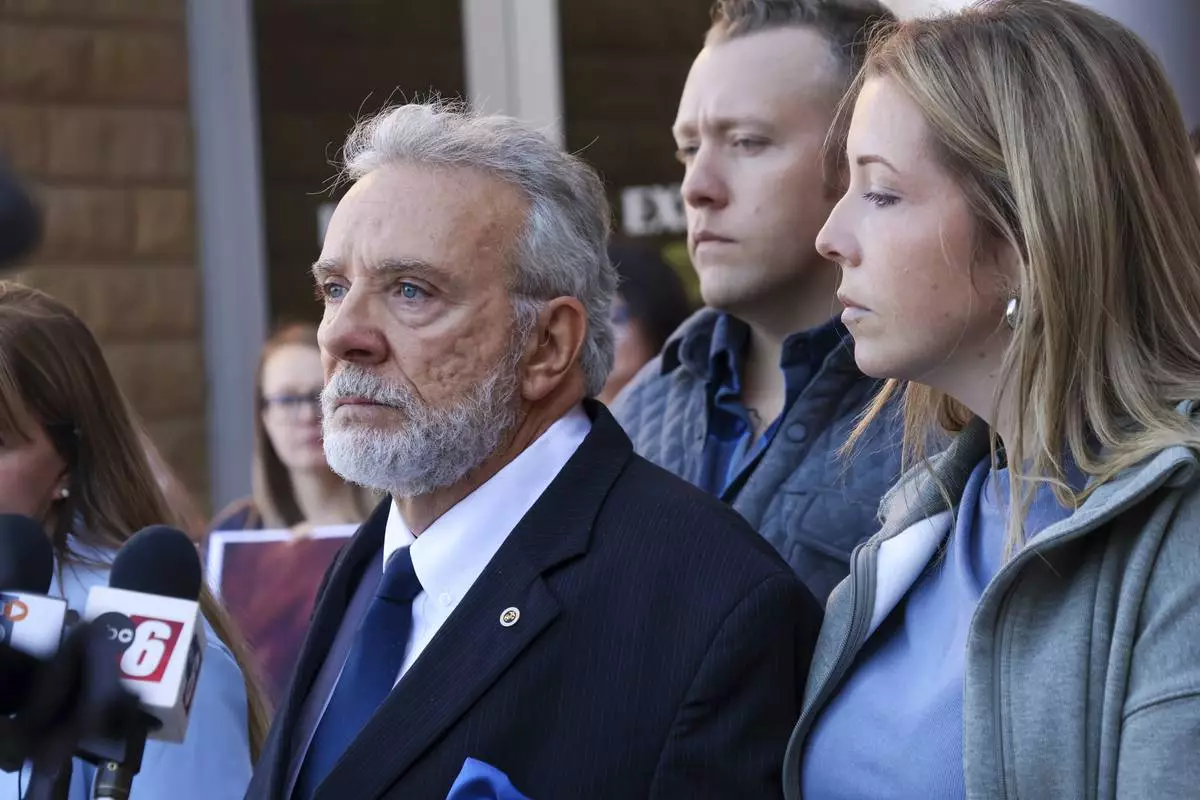
FILE -David Kingsbury, the father of Madeline Kingsbury, addresses the press after the jury found Adam Fravel guilty of Madeline's murder on all counts at the Blue Earth County Justice Center, Nov. 7, 2024 in Mankato, Minn. (Hannah Yang/Minnesota Public Radio via AP)
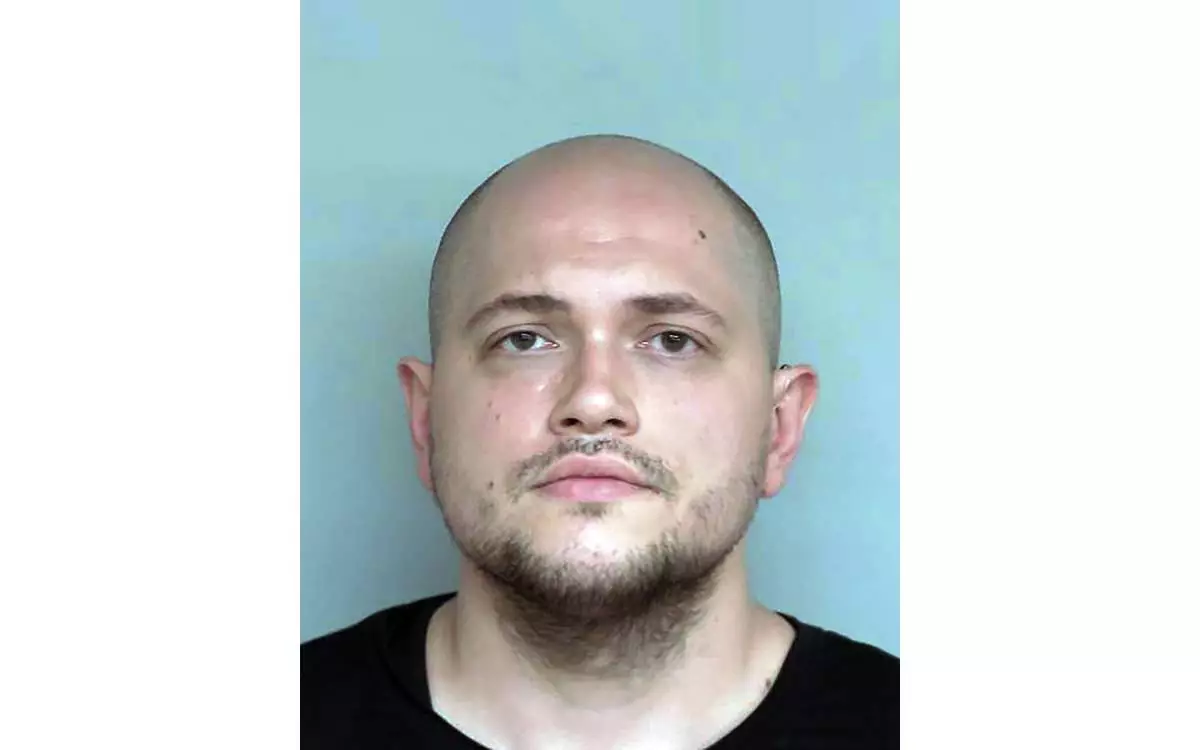
FILE - This undated booking photo provided by the Winona County, Minn., Detention Center shows Adam Fravel. (Winona County Detention Center via AP, File)
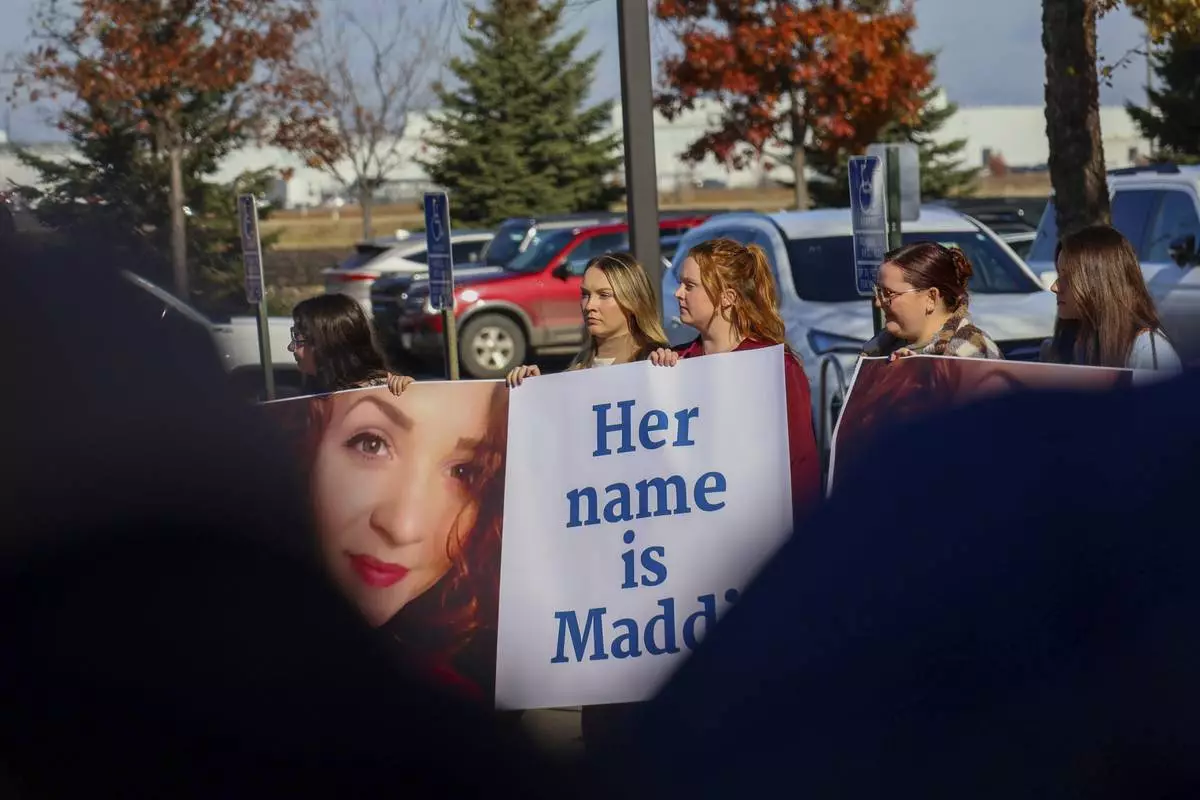
FILE -After a three-week trial at the Blue Earth County Justice Center in Mankato, Minn. the jury found Adam Fravel guilty on all counts for the murder of Madeline Kingsbury on Thursday, Nov. 7, 2024. (Hannah Yang/Minnesota Public Radio via AP, File)
MICHIGAN CITY, Indiana (AP) — An Indiana man convicted in the 1997 killings of his brother and three other people is set to receive a lethal injection by early Wednesday in the state's first execution in 15 years.
Joseph Corcoran, 49, has been on death row in Indiana since 1999, the year he was convicted in the shootings of his brother, 30-year-old James Corcoran, his sister's fiancé, 32-year-old Robert Scott Turner, and two other men: Timothy G. Bricker, 30, and Douglas A. Stillwell, 30.
Barring last-minute court action or intervention by Gov. Eric Holcomb, Corcoran is set to be put to death before sunrise Wednesday at the Indiana State Prison in Michigan City, according to state officials. Last summer, the governor announced the resumption of state executions after a yearslong hiatus marked by a scarcity of lethal injection drugs nationwide.
The state has provided few details about the process, including a specific execution time. No media witnesses will be permitted under state law. Indiana prison officials provided photos of the execution chamber in advance, showing a space that looks like a sparse operating room with a gurney, bright fluorescent lighting, a floor drain and interior windows to an adjacent viewing room.
Corcoran's attorneys have fought the death penalty sentence for years, arguing that Corcoran is severely mentally ill, which affects his ability to understand and make decisions. Corcoran exhausted his federal appeals in 2016. Earlier this month, his attorneys asked the Indiana Supreme Court to stop his execution but the request was denied.
However, attorneys say since the justices were split 3-2 that signals there's a chance.
“Given that it is a close case, it shouldn’t be rushed through,” said defense attorney Larry Komp. “He’s so extremely mentally ill. We think he’s irrational. We’ve never had a fair process.”
Attorneys have said one sign of Corcoran's mental illness includes a handwritten affidavit that Corcoran wrote to the justices this month saying he was done litigating his case.
“I am guilty of the crime I was convicted of, and accept the findings of all the appellate courts,” he wrote.
According to court records, before Corcoran fatally shot the four victims in July 1997, he was under stress because the forthcoming marriage of his sister to Turner would necessitate moving out of the Fort Wayne, Indiana, home he shared with his brother and sister.
He awoke to hear his brother and others downstairs talking about him, loaded his rifle and then shot all four men, records show. While jailed, Corcoran reportedly bragged about fatally shooting his parents in 1992 in northern Indiana’s Steuben County. He was charged in their killings but acquitted.
If Corcoran is put to death as scheduled by early Wednesday, it will be the state’s first execution since 2009. In that time, 13 executions were carried out in Indiana but those were initiated and performed by federal officials in 2020 and 2021 at a federal prison in Terre Haute.
Indiana’s last state execution was in 2009 when Matthew Wrinkles was put to death for killing his wife, her brother and sister-in-law in 1994.
State officials have said they couldn’t continue executions because a combination of drugs used in lethal injections had become unavailable.
For years, there has been a shortage across the country because pharmaceutical companies have refused to sell their products for that purpose. That’s pushed states, including Indiana, to turn to compounding pharmacies, which manufacture drugs specifically for a client. Some use more accessible drugs such as the sedatives pentobarbital or midazolam, both of which, critics say, can cause intense pain.
Last week, Corcoran's attorneys filed a petition in U.S. District Court of Northern Indiana asking the court to stop the execution and hold a hearing to decide if it would be unconstitutional because Corcoran has a serious mental illness. They cited “severe and longstanding paranoid schizophrenia.” But the court rejected the bid to intervene on Friday, prompting attorneys to file an appeal with the U.S. Court of Appeals for the 7th Circuit.
Multiple groups, including religious groups and disability rights advocates, have opposed the execution. Several activists were planning a vigil starting late Tuesday outside the prison, about 60 miles (90 kilometers) east of Chicago.
In early December, Indiana Disability Rights asked the governor to commute Corcoran’s sentence to life imprisonment without the possibility of parole.
Holcomb recently said he would let the legal process “play out” in Corcoran's case before deciding whether to intervene.
One of Corcoran’s sisters, Kelly Ernst, who lost both a brother and her fiancé in the 1997 shootings, said she believes the death penalty should be abolished and her brother’s execution won’t solve or change anything. She is not planning to be present for the execution.
Ernst said she had been out of contact with her brother for 10 years until recently.
“I’m at a loss for words. I’m just really upset that they’re doing it close to Christmas,” she said. “My sister and I, our birthdays are in December. I mean, it just feels like it’s going to ruin Christmas for the rest of our lives. That’s just what it feels like.”
Callahan reported from Indianapolis.
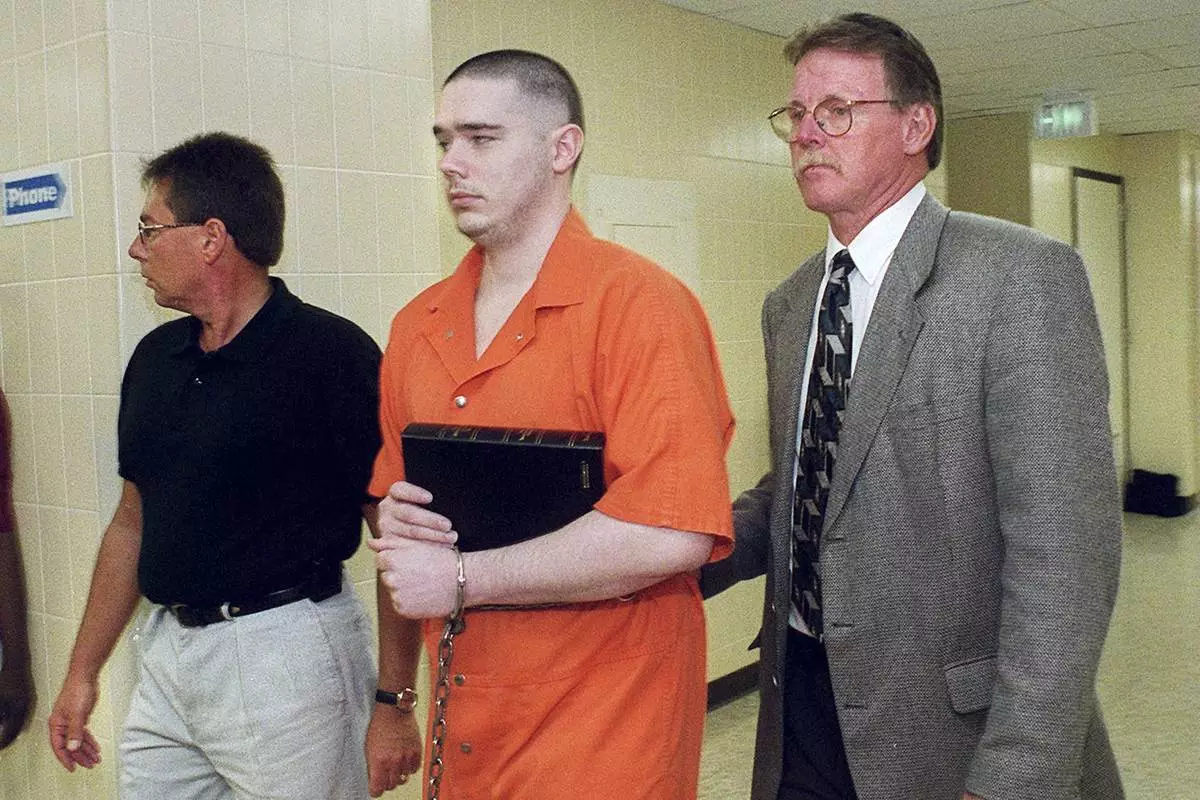
Joseph Corcoran is led to the City-County Lockup on Aug. 26, 1999, in Fort Wayne, Ind., after being sentenced to death in the slayings of four people in July 1997. (Matt Sullivan/The Journal-Gazette via AP)
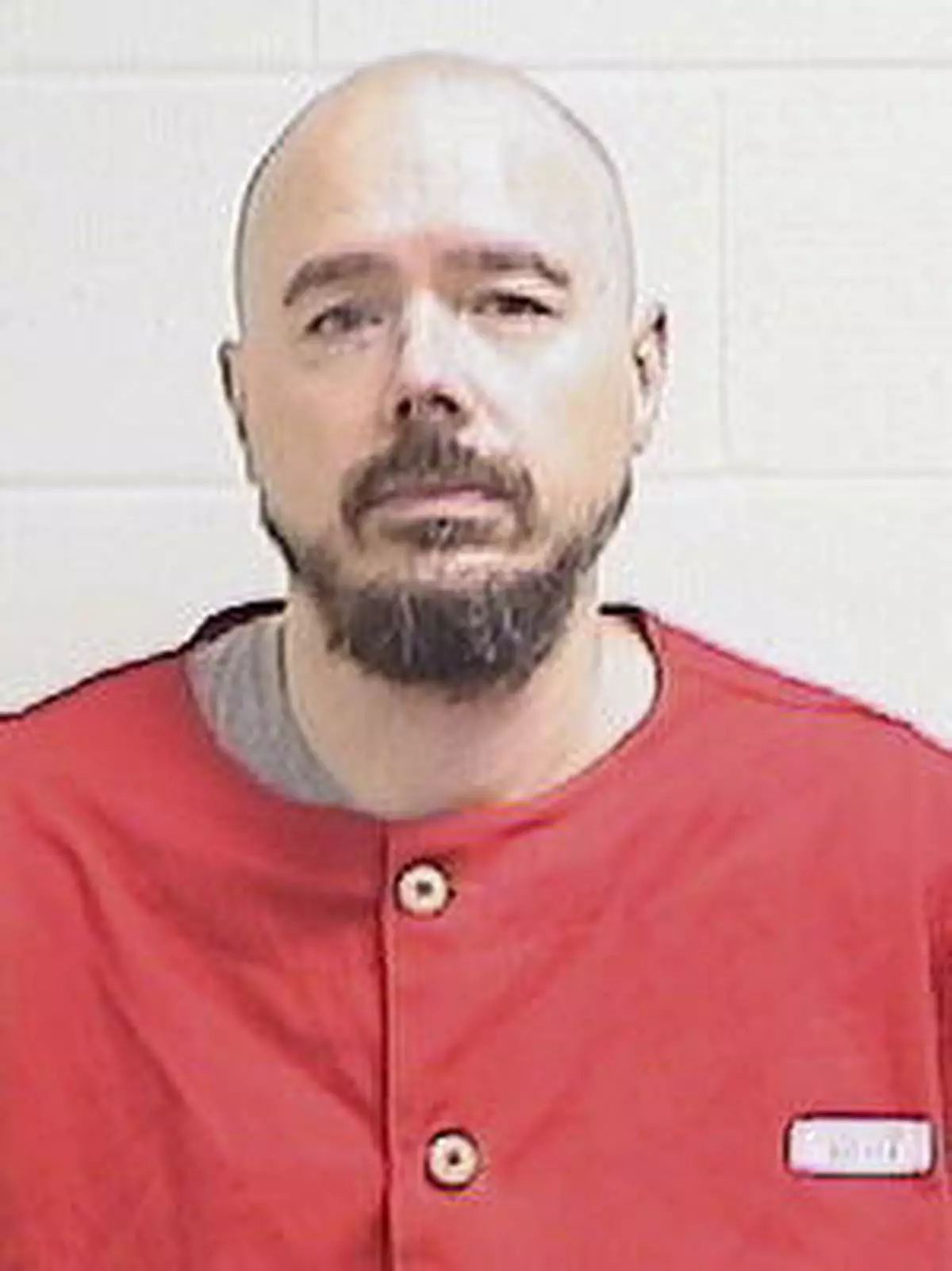
This undated photo provided by the Indiana Department of Corrections, shows Joseph Corcoran, who is scheduled to be executed before sunrise on Dec. 18, 2024. (Indiana Department of Corrections via AP)








